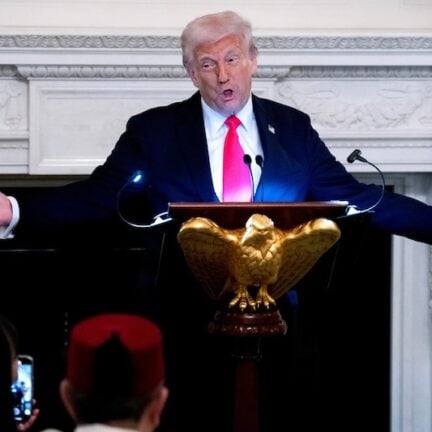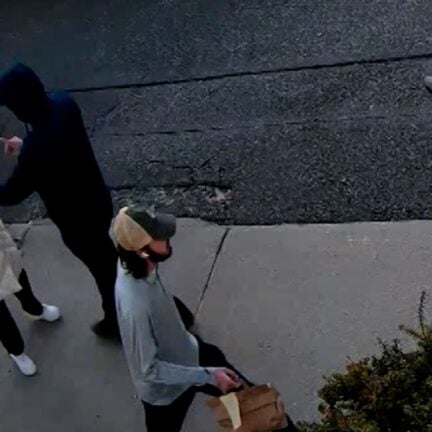Question: Walid Elmi
Our sheikh, is the bank selling what it does not own forbidden to the bank or to the buyer?
Question: Wafaa Muhtasib
If the merchant, does not have the goods but requests them from another merchant and sells them to the buyer, considered from “selling what he does not own”?
Answer:
Both of your questions are of the same topic and here is the answer to you both:
The trader selling a commodity that he does not own is forbidden, i.e. a void contract that the seller and the purchaser bear its sin. If he knows that the commodity that is being contracted for is not in the possession of the merchant; rather, the merchant will go and buy it from the market and bring it to the buyer… We have clarified this in The Islamic Personality Volume II in Chapter: “It is not allowed to sell what you do not have”:
“It is not allowed to sell a good before completing its ownership so selling it in this situation is a void sale. This is verified in two situations. Firstly, that one sells the good before he owns it. Secondly, he sells it after buying it but before he completes owning it via taking possession in that whose completion of ownership is conditioned upon taking possession. This is because the sale contract only occurs upon owned property so that which is not owned yet or is purchased but its ownership is not yet completed since its possession has not yet been taken, then there cannot occur over it the sale contract because there does not exist a place for the contract to occur over it in the Shar’a. The Messenger of Allah (saw) prohibited the sale of what the seller does not own. It is narrated from Hakeem bin Hazam (ra) who said:
«قلت: يا رسول الله يأتيني الرجل يسألني عن البيع ليس عندي ما أبيعه، ثم أبيعه من السوق»، فقال: «لا تبع ما ليس عندك»
“I said: O Messenger of Allah, there comes to me a man asking me to sell what I do not have to sell then I buy if from the market. He said: Do not sell what you do not have”(Narrated by Ahmad). And from Amru bin Shuaib from his father from his grandfather who said: The Messenger of Allah (saw) said
«لا يحل سلف وبيع، ولا شرطان في بيع، ولا ربح ما لم تضمن، ولا بيع ما ليس عندك»
“It is not allowed to borrow and sell, nor two conditions in one sale, nor a profit that is not included nor the sale of what you do not have”(Narrated by Abu Dawud). The expression of the Messenger (saw) of “what you do not have” is general including your ability to deliver what you don’t completely own. This is strengthened by the ahadith which came with a prohibition of selling that which is not possessed in that whose completion of ownership is conditioned upon taking possession. This indicates that whoever buys that which requires taking possession until his purchase is completed is not permitted to sell until he takes its possession. So its rule became the rule of selling that which he does not own due to the Prophet (saw)’s statement:
«من ابتاع طعاماً فلا يبعه حتى يستوفيه»
“Whoever sells foodstuff, he should not sell it until he pays its due” (Narrated by Al-Bukhari). And due to what Abu Dawud
«أن النبي ﷺ نهى عن أن تباع السلع حيث تبتاع حتى يحوزها التجار إلى رحالهم»
“That the Prophet (saw) prohibited goods to be sold where they are bought until the trader collects them to their mounts” And due to what ibn Majah narrated: «أن النبي ﷺ نهى عن شراء الصدقات حتى تقبض»، “The Prophet (saw) prohibited the purchase of charity (sadaqat) until it is taken possession.” And due to what was narrated by Al-Bayhaqi from Ibn Abbas that he said: The Prophet (saw) sent Uttab bin Usayd to Makkah, he said:
«إني قد بعثتك إلى أهل الله، وأهل مكة، فانههم عن بيع ما لم يقبضوا»
‘I have been sent to the people of Allah and the people of Makkah, Prohibit them from selling that which they have not taken possession of.’” These ahadith are explicit in prohibiting that which they have not taken possession of since the seller has not completed his ownership over it. This is because that which requires taking possession of, then its ownership is not completed until the buyer possesses it and also because it is in the guarantee of its seller.
Hence it is clarified that it is a condition of the validity of sale that the seller owns the good and has completed his possession therein. If however he does not own it or he owns it but has not completed his own ownership therein then it is absolutely not allowed to sell it. This includes what he owns but has not taken possession in what taking possession is a condition to complete the sale which is what is measured, weighed and counted. As for those for which taking possession is not a condition of completing ownership which is other than that which is measured, weighed or counted such as the animal, house and land and what is similar then it is permitted for the seller to sell it before taking possession. This is because the mere occurrence of the sale contract by offer and acceptance completes the sale whether he takes possession of it or not, so he would have sold that which his ownership over it is accomplished. The issue of the sale being void is not related to taking possession or not; rather it is related to the ownership of the sale and the completion of ownership therein. As for permitting the sale of something that has not been possessed in other than what is weighed or counted, this is established by the sahih hadith. And Al-Bukhari narrated from ibn Umar (ra) that he was riding troublesome camel which belonged to Umar
«فقال له النبي ﷺ بعنيه، فقال عمر: هو لك فاشتراه ثم قال: هو لك يا عبد الله بن عمر، فاصنع به ما شئت»
“So the Prophet (saw) said to him to sell it to him. So he bought it then said: It is for you, O Abdullah ibn Umar, so do with it as you wish.” This is disposal in the sale by gift before taking possession of it which indicates the completion of ownership in the sold good before taking possession of it. It indicates the permissibility of selling it because the seller’s ownership therein has been completed. Accordingly whatever the seller owns and his ownership is completed over it then it is permitted for him to sell it. And whatever (good) whose ownership is not completed is not permitted to be sold.
Hence what is done by small traders of bargaining with the buyers of the good then agreeing with him over the price and selling it to him, then going to another trader to buy it for the one whom he sold it to and then presenting it and delivering it to the buyer is not permitted because it is selling that which is not owned. When the trader is asked about the good, it is not before him nor does he own it but he knows it exists in the market with others. So he lies and tells the buyer that it is present and sells it to him, then he goes to buy it after selling it. This is haram and not permitted as it is selling that which is not owned.
Similarly what is done by the owners of shops in the vegetable and grain market when they sell vegetables and wheat before their ownership therein is completed. Some traders buy vegetables or wheat from farmers and sell it before they have taken possession of it. This is not permitted as it is from the foodstuff wherein ownership is not. It is not allowed to sell what you do not have completed except by taking possession of it.
Similar is what importers from other countries do. Some of them sell the goods and make the delivery in the country a condition therein, then sell them before they arrive i.e. before their ownership over them is completed. This sale is forbidden as it is selling before the ownership over it is completed” [End Quote]
I hope that this is sufficient and Allah is Most Knowledgeable Most Wise.
Your brother,
Ata Bin Khalil Abu Al-Rashtah
6 Dhul Qi’dah 1444 AH
26/5/2023 CE













